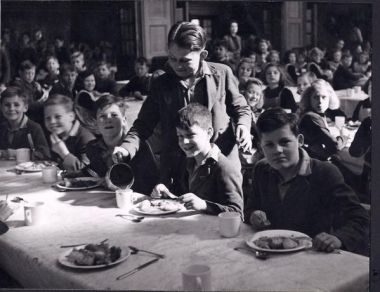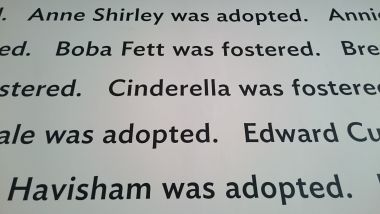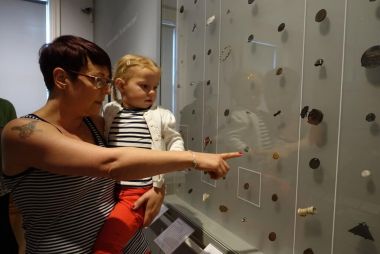Star Wars, James Bond, Snow White and what they teach us about adoption and fostering

"Boba Fett was fostered." The cult Star Wars character wasn't who I expected to encounter in London's Foundling Museum. For 180 years, thousands of children were cared for here because their parents were not able to care for them. The great composer George Frideric Handel used to organise annual recitals of "The Messiah" to raise funds for the Foundling Hospital and today an original copy of the manuscript has place of honour in the museum. I visited because I am recording a special edition of the Radio 4's Sunday Morning Service. This follows a new tradition in the BBC's religion department of tackling significant social issues in worship programming that started with Songs of Praise going to the Calais refugee camp. In this special programme we are going to look beyond the romanticism surrounding adoption and into the gritty realities.
One of the most challenging parts of the recording for me was interviewing a young mum who came to visit the museum with her toddler daughter. There were lots of families visiting that day and this mother and daughter looked like any other. But, as we stood next to one of the display cases she told me about her secret history. The display case held fifty tiny intricate tokens that mothers left with the babies they gave to the care of the Foundling Hospital. In the 1700s these tokens were a way of identifying the children at a time when record keeping was not what it is today.
But these tokens were also a labour of love for the mothers. Many were made of precious things, beautifully embroidered velvet hearts and tiny trinkets. This young mum explained that when her children were taken from her by social services she put tokens into a 'memory box' for her sons. These included cards, a lock of her hair and their favorite soft toys. She said she had addiction issues and was in an abusive relationship and although it broke her heart to have her children taken away she was in no fit state to care for them. She thinks of her lost children every day and so together we lit a candle and said a prayer for them and their carers.

Sadly this same story is repeated many times a day. A child is brought into care every 22 minutes in the UK. Right now there are an increasing number of children in care but fewer children being adopted. There are many complicating factors that have lead to this. Firstly, most of the children coming into care are not babies and most adopters want to adopt babies. Secondly, after a landmark child protection case, fewer children have been made available for adoption - instead they are being kept in long term foster care. Sometimes foster care can be a really good option for children but sadly the majority of children who stay in long term foster care do not have great life outcomes.

After praying with the young mum our next stop was to visit the Royal Courts of Justice to meet Rachel Gardner and to hear her heart warming story of her family's day in court to adopt her daughter. As we walked down the long echoey corridors Rachel's enthusiasm was infectious as she recounted the joy of her big day. It's worth tuning in on Sunday morning at 8.10am to hear that part of the show alone!
But, just like a marriage doesn't end at the wedding day, so the legal ceremony marks just the beginning of an adoption. After hearing Rachel's story we met with a group of adopted young people who talked about their perspective of the process. One lad told us about some of his challenging behaviour, especially his anger in the early days of his adoption. This honesty is important as many of us think adoption must be just as it is portrayed in films and in literature. Back in the Foundling Museum it is not only Boba Fett's name that is inscribed on the walls. We were also reminded that James Bond was an orphan, Superman was a foundling, Snow White was fostered, Spiderman was adopted along with many more characters from fiction.

It's heartening to know that "orphans" play such an important part in our literature and cinema. These stories remind us that our past does not have to determine our future. Sadly many of these stories are fairytales while the situation of many of the children waiting in care is anything but a fairytale. I invite you to listen in to the service on Radio 4 this weekend and then perhaps during this year's National Adoption Week reflect on whether part of your worship, not just Sunday worship, should involve being the parent that a child in care needs.
Dr Krish Kandiah is presenting Radio 4's Sunday worship on October 18 at 8.10am. He is the founding director of Home for Good.











